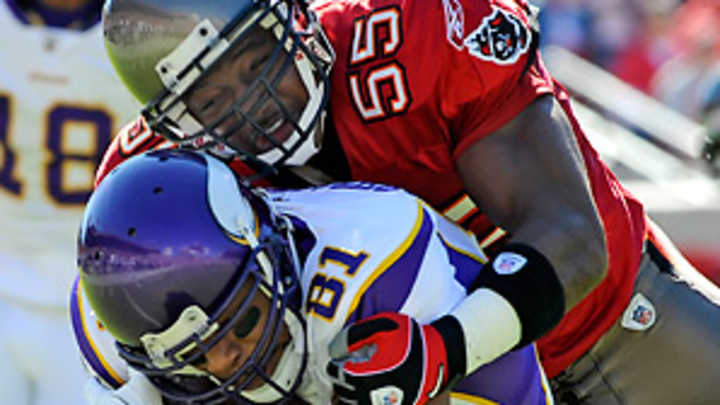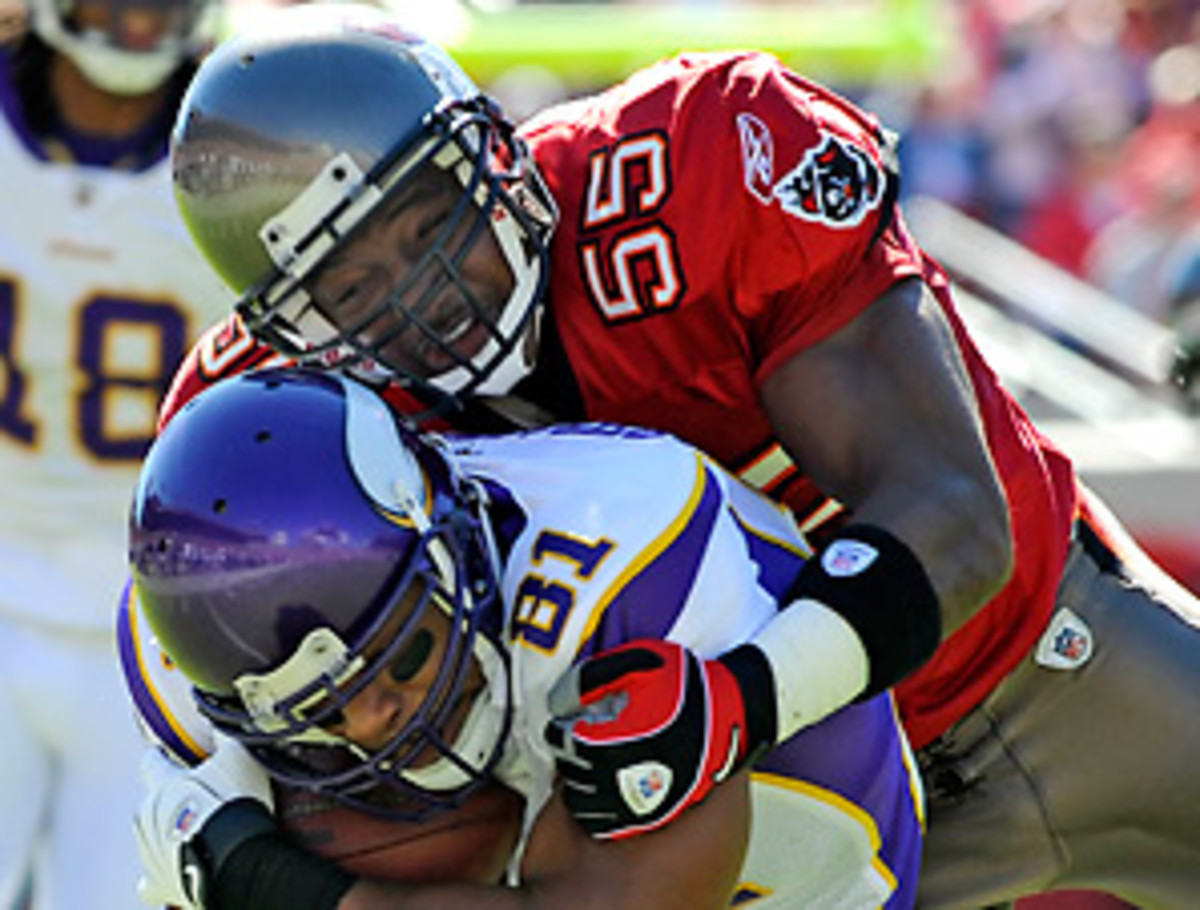Best of the Firsts, No. 28: Derrick Brooks


Derrick Brooks helped turn the Buccaneers defense into one of the best in NFL history. (Getty Images)
As part of our offseason coverage, we're taking a look back at some of the best first-round draft picks since the AFL-NFL merger in 1970. We'll work our way up the draft board, starting with the best selection made with the No. 32 pick and ending with the top No. 1 pick. Track all the choices here.
The No. 28 Pick: Derrick Brooks, 1995, Tampa Bay Buccaneers
His Credentials: Played all 14 seasons with Tampa Bay, 11-time Pro Bowler, nine-time All-Pro, Super Bowl XXXVII champion, 2002 Defensive Player of the Year, voted to NFL's 2000s All-Decade Team, 1,715 career tackles and 25 interceptions
Others in Consideration: Darrell Green (1983, Redskins); Ezra Johnson (1977, Packers); Trevor Pryce (1997, Broncos)
The decisions only get tougher the higher up the draft we go, but there are few head-to-head matchups that are as perplexing as the one at No. 28 overall between Derrick Brooks and Darrell Green.
Green played his entire 20-year career in Washington and, man, what a career it was. A seven-time Pro Bowler, four-time All-Pro, two-time Super Bowl champion and member of the NFL's All-Decade Team for the 1990s, Green earned a Hall of Fame nod in 2008.
One of the fastest players the league has ever seen, Green turned in an amazingly long and productive run -- he had an interception in 19 consecutive seasons, his streak breaking only in his final year.
Green's career often gets pitted up against Deion Sanders' in a battle of "Who was the greatest cornerback?" In many of those arguments, Green comes out on top.
So why is he second fiddle to Brooks here?
Well, one of the main reasons is that when Tampa Bay selected both Brooks and Warren Sapp in Round 1 of the 1995 draft, it started a sea change within the franchise, one that continued the next season when Tony Dungy came on as head coach.
It was Dungy who shifted Brooks from strongside linebacker to the weakside, where he could line up behind Sapp in the famed Tampa-2 defense. That move helped Brooks become a premier linebacker in the NFL for an extended stretch.
Brooks wound up being selected to the NFL's All-Decade Team for the 2000s, alongside Ray Lewis and Brian Urlacher at linebacker.
"He epitomized what was special about that defense," Dungy told USA Today of Brooks last year. "They had great pride and strong study habits. He put in the mental work."
The Tampa Bay defense may not have been the dominant unit it was without Brooks' presence. Over his 14 years with the Bucs, Brooks recorded more than 1,700 tackles and intercepted 25 passes. Essentially, he was to the linebacker position what Green was at corner -- a total shut-down player, whose speed and smarts made him a totally unique weapon.
By 1997, the Bucs were in the playoffs for the first time since the strike-shortened '82 campaign. In 1999, Tampa Bay won a division crown. And in 2003, behind Jon Gruden, Brooks and the Buccaneers celebrated a Super Bowl championship.
Brooks becomes eligible for the Hall of Fame in 2014, and it seems like a mere formality that he'll wind up enshrined in Canton at some point, be it on his first attempt or not. A Hall nod would be the feather in the cap of Brooks' career, one that led the Orlando Sentinelto declare him the "greatest football player in the state of Florida's history," over Emmitt Smith and hundreds of others.
